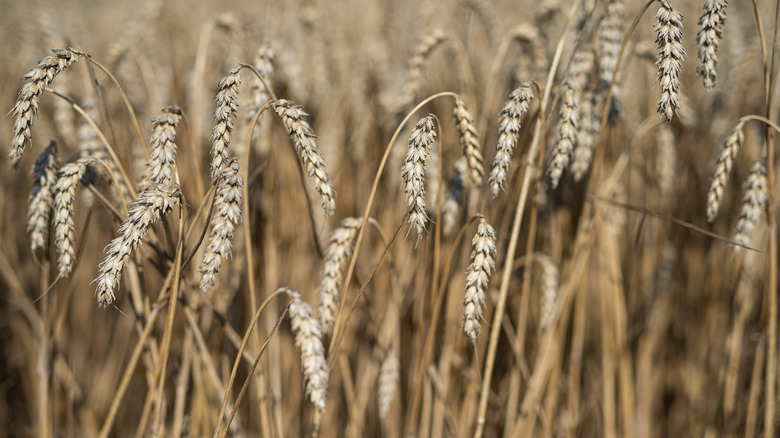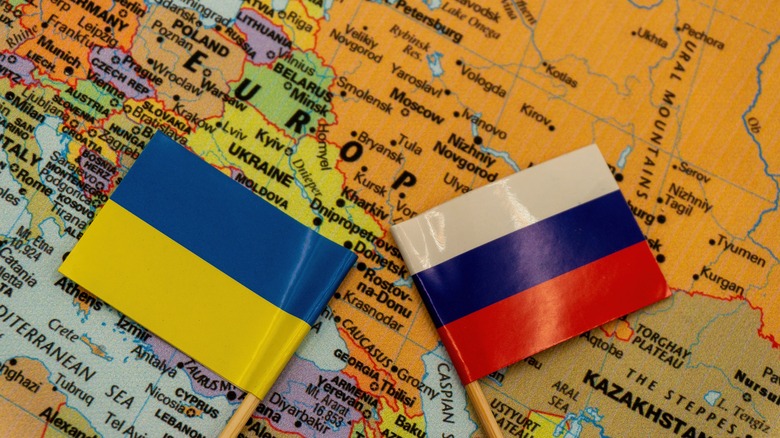How Social Media Conspiracies Are Spreading Lies About The Global Food Crisis
In recent weeks, social media accounts have tried to reframe the global food crisis that resulted from the Russian invasion of Ukraine as a problem created by the West and Ukraine, not Russia. It's not a particularly novel approach. Rather, some might say it's a social media reflection of Russia's PR strategy.
Since early June, Russia has faced charges that it is "weaponizing" food (per CNBC). In other words, Russia is using the disruption of Ukraine's grain exports, which make up a large percent of the global grain market, as an additional pressure to keep other countries from either interfering or siding with forces Russia considers as opponents. This can be seen in the visit Sergei Lavrov, Russia's Foreign Minister, made to Egypt (per BBC). BBC's Will Ross noted that with some 40% of Africa's wheat coming from Russia and Ukraine, "Some African leaders will be aware that when people cannot afford to eat, their own positions in power are less secure."
However, as Reuters reported in June, Russia has consistently denied any blame for the food crisis, stating that the charges were lies made up by the West. Moreover, Russian spokeswoman Maria Zakharova questioned how the European Union can stop importing agricultural products from Russia and then accuse Russia of starting a crisis.
These arguments are spread on social media
A report by the Network Contagion Research Institute (NCRI) has found that these same lines are now being fed into Twitter and other sites that can spread misinformation. The report, which was published on July 28, notes that despite protestations, the Kremlin has proactively stated they will use hunger as a weapon. Specifically, their aim is that a famine will reduce enthusiasm for defending Ukraine.
While this is happening, the phrase "new world order" has been becoming more prevalent on Twitter. According to the report, the accounts using the phrase had overlap with anti-vaccine and QAnon propaganda. Two things make them important here, though. First, since Dutch farmers began protesting the impact that emission cuts will have on their work, the phrase "new world order" has seen an explosion in popularity, with some conspiracy theorists worrying that the World Economic Forum will assassinate farmers and force people to begin eating insects.
The second reason is that many of these accounts are also connected to pro-Putin misinformation accounts. "Taken together," the report concludes, "these data suggest that networks that disseminate pro-Putin material and engage in inauthentic coordinated behavior are now switching to amplify NWO/globalist narratives in tandem with narratives about food security and agricultural mandates."

